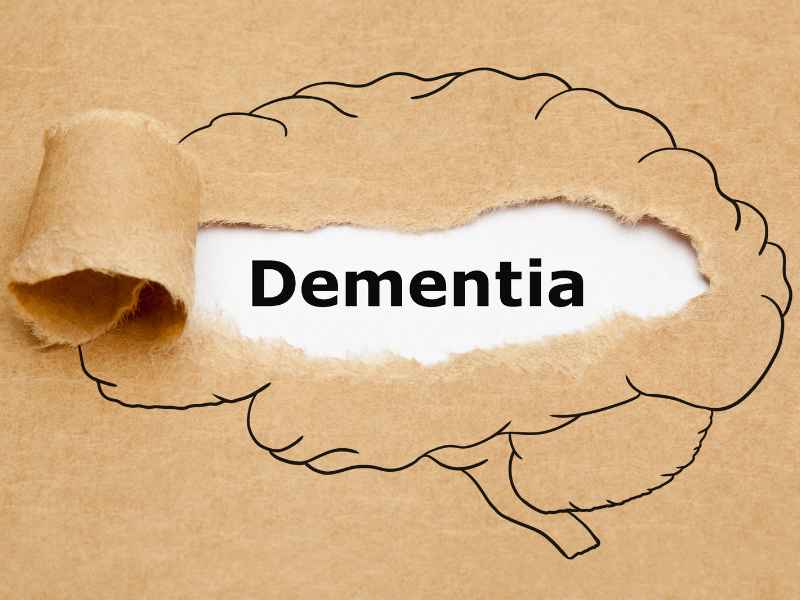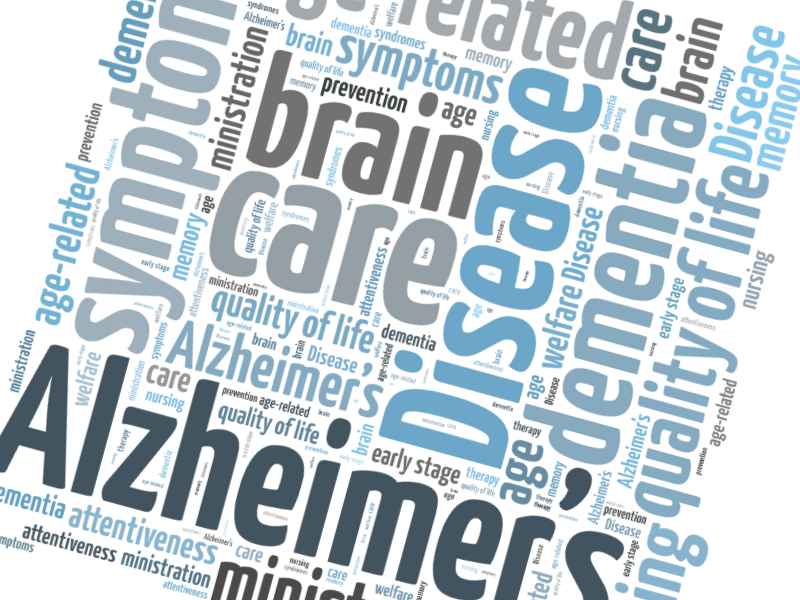Does Drinking Alcohol Increase Your Risk of Dementia?
Discover the link between alcohol and dementia. Learn how excessive drinking affects the brain, the types of dementia it can cause, and how to prevent and treat it. Knowledge is power - stay informed.

Do you enjoy the occasional glass of wine or a beer? How about after a long day of work? Maybe you like going out with your friends and having a few cocktails on a weekend. Moderate alcohol consumption can be enjoyable. It can even have some health benefits. Drinking excessively, however, can be damaging.
One such consequence is the increased risk of developing dementia. Dementia is a term used to describe a decline in cognitive function. It affects memory, thinking, and behaviour. Caused by damage to brain cells, it can occur due to various factors. Your age, genetics, head injuries, and chronic alcohol abuse determine your risk of dementia.
Here, we'll explore the link between alcohol and dementia. Can excessive drinking impact the brain? What types of dementia are associated with alcohol use? What are available prevention and treatment options? How's the education and awareness surrounding this topic? We shall dwell on these questions.
Understanding Dementia and Its Causes

You might be wondering what causes dementia and how it affects your loved ones. Understanding its underlying factors can help you better support them through this hard journey.
Understanding the link between lifestyle choices, particularly alcohol consumption, helps prevent dementia. By making informed decisions about our health behaviours, we can reduce dementia risk and improve our overall health and well-being.
About Dementia
Dementia is a broad term used to describe a range of symptoms that affect memory, thinking, communication, and daily activities. While there are many types of dementia, Alzheimer's disease is the most common form. Dementia is not a normal part of aging, but the risk increases with age.
Dementia is a progressive condition. That means it gets worse over time. A person's speed of progression can vary. However, its trajectory is a gradual decline.
Lifestyle Choices on Dementia
Lifestyle changes may help prevent or delay the onset of dementia. There's an abundance of evidence supports that. Regular physical activity and eating a healthy diet are some ways to prevent or delay onset.
While these changes may not eliminate all risk, they can significantly reduce it and improve overall brain health.
Alcohol and the Brain

It may surprise you to learn that drinking too much alcohol can have a significant impact on your brain. Alcohol is a powerful neurotoxin. It can have profound effects on the brain. Moderate drinking isn't too concerning. Too much, however, can lead to serious brain damage and cognitive impairment, increasing the risk of dementia.
How Alcohol Causes Brain Damage
Alcohol can have both immediate and long-term impacts on the brain.
In the short term, excessive drinking can lead to impaired judgement, memory loss, and slowed reaction times. These symptoms may indicate acute alcohol-induced brain damage and can often be diagnosed through various neurological tests.
Brain damage happens with the killing of neurons and decreasing the size of the brain's white matter.
However, the long-term effects are more devastating. Prolonged heavy drinking can cause permanent damage to neurons in the brain. This leads to cognitive impairment, and an increased risk for developing dementia later in life.
Chronic alcohol use also leads to reduced grey matter in certain regions of the brain. What does this mean? The neurons in our grey matter handle executive functioning, decision making, and emotional regulation [1].
Increased Risk of Cognitive Impairment
Excessive drinking can lead to an increased risk of cognitive impairment. A reduction in brain volume is often linked to a decline in cognitive functioning. These declines present themselves as memory loss and difficulty with problem-solving. They’re also linked to an increased risk of developing dementia [2].
Heavy drinking can lead to alcohol-related brain damage (ARBD). ARBD can manifest in several ways. This includes alcoholic dementia, which is irreversible even with abstinence.
Fortunately, early detection and lifestyle modifications can help. They mitigate the damage caused by heavy drinking. We need to recognise the warning signs and seek medical attention as soon as possible. Lifestyle changes, such as reducing alcohol intake or quitting altogether, can significantly improve brain function over time.
Take early action, and you can prevent further damage. You can maintain your cognitive abilities for years to come.
Types of Dementia Linked to Alcohol Consumption

When you drink excessively over a prolonged period, you risk developing various types of dementia. The exact mechanisms by which heavy drinking contributes to their risks are complex and still being researched. However, it's clear that it can have serious consequences for brain health.
Two common types associated with alcohol consumption are Wernicke-Korsakoff Syndrome (WKS) and Alzheimer's disease.
Wernicke-Korsakoff Syndrome is a severe form of memory loss caused by a thiamine deficiency. Alzheimer's disease is a progressive brain disorder that affects cognitive functions such as memory, thinking, and behaviour. Excessive alcohol consumption also increases the risk of all-cause dementia [2].
Wernicke-Korsakoff Syndrome
As you consume alcohol excessively, your brain becomes vulnerable to WKS. Alcohol interferes with the absorption of thiamine (vitamin B1) [3].
WKS is an alcohol-related form of dementia. It predominantly affects individuals with heavy alcohol consumption for an extended period.
Diagnosing this syndrome can be challenging as it presents with different symptoms in different individuals.
People with WKS often have difficulty forming new memories. They may make up stories (confabulation) to fill in the gaps in their memory. This condition is often severe. Thiamine can help prevent more brain damage, but usually won't restore lost abilities.
Alzheimer's Disease
Let's move on to another type of dementia commonly associated with alcohol consumption: Alzheimer's disease.
Alzheimer's disease is the most common form of dementia. It's a progressive disorder that affects memory and cognitive function.
There are many risk factors for Alzheimer's disease, including genetics and age. Recent research has suggested a potential link between heavy drinking and an increased risk of Alzheimer's [4].
Excessive alcohol consumption over a long period can lead to brain damage and increase the risk of Alzheimer's disease. Alcohol can cause neurotoxicity, leading to brain cell death. It can also contribute to the development of plaques in the brain - a hallmark of Alzheimer's Disease [5].
Alcohol can indirectly increase Alzheimer's risk. Health problems, such as liver disease and cardiovascular disease, can lead to inflammation and changes in the body. These may harm the brain and contribute to Alzheimer's and other forms of dementia.
Prevention and Treatment of Alcohol-Related Dementia
Preventing alcohol-related dementia involves a combination of lifestyle changes and medical interventions. We want to reduce risk behaviours, such as excessive drinking, and promote healthy behaviours.
With treatment, the focus is on managing symptoms. We should aim to slow the progression of the disease and improve quality of life.
Limit Alcohol Consumption
One effective way to prevent alcohol-related dementia is by limiting your alcohol consumption. This would be the most direct method of prevention. We should follow the recommended guidelines for alcohol intake. The Australian Alcohol Guidelines recommend a limit of 10 drinks a week [6].
If you or someone you know finds it difficult to control your intake, seek help. There's medical treatment for alcohol dependence, counselling, and support groups. It's never too late to make changes.
Physical Exercise
Physical exercise helps in the prevention of alcohol-related dementia. You'd not only help in maintaining overall health but also support your brain health.
Regular exercise increases blood flow to the brain, supporting cognitive function. Exercising to manage your weight reduces your risk for cardiovascular disease - a risk factor for dementia.
Healthy Diet
A healthy diet protects the brain from damage. Fruits, vegetables, lean protein, and whole grains provide necessary nutrients for brain health. Omega-3 fatty acids, found in fatty fish like salmon, are also beneficial for brain health.
Hydration
Stay hydrated. Dehydration can impair cognitive function and lead to confusion, a common symptom of dementia. Aim to drink plenty of water each day. Limit intake of drinks high in sugar or caffeine. Consuming too much sugar increases dementia risk [7].
Engage in Cognitive Activities
Engaging in cognitive activities helps keep your brain active. These activities include puzzles, reading, or learning something new. Do something that stimulates your brain. Help yourself by maintaining your cognitive function.
Should You Abstain From Alcohol Completely?

Contrary to how this post's been going, drinking can be a good thing. Drinking just low-levels of alcohol might prove beneficial.
A global review of studies on alcohol use shows that people who abstain completely have an increased risk of dementia than moderate drinkers [8]. This is evidence suggesting alcohol provides a protective effect in reducing dementia risk.
What does this mean? It shouldn't spur you to drink more. Rather, you don't have to give up on your guilty pleasures completely. Moderation is more than enough.
Conclusion
By now, you should have a good understanding of how excessive alcohol consumption can lead to various types of dementia. Remember to curb your drinking, as heavy and prolonged consumption leaves you more likely to develop dementia.
Prevention is as simple as maintaining a healthy lifestyle. Limit your alcohol intake or avoid it altogether if necessary. Seek treatment if you have an addiction problem.
Don't forget to spread awareness among family members and friends! This is so that they too can make informed decisions about their own health. With these actions in mind, we can work towards reducing the prevalence of dementia caused by alcohol consumption.
Frequently Asked Questions
How much does alcohol increase Alzheimer's risk?
The relationship between alcohol and Alzheimer's is complex. Moderate alcohol consumption does not appear to significantly increase the risk of Alzheimer's.
However, heavy drinking or binge drinking over a long period does. It can lead to brain damage, increasing the risk of Alzheimer's disease. The magnitude of the risk increase depends on factors such as genetics, overall health, and drinking patterns.
How common is alcohol related dementia?
Alcohol-related dementia is less common than other types of dementia, like Alzheimer's disease. However, it is still a significant public health issue. About 10% of all dementia cases are related to alcohol consumption. The actual number may be higher, as alcohol-related dementia is often underdiagnosed [9].
Are drinkers less likely to get dementia?
Not necessarily. Some studies may have suggested that moderate alcohol consumption might have a protective effect on the brain.
However, excessive alcohol consumption is a known risk factor for several types of dementia. This includes Alzheimer's disease and Wernicke-Korsakoff syndrome. Take note that the potential risks of heavy drinking far outweigh any potential benefits.
What kind of wine prevents dementia?
Some evidence suggests that moderate consumption of red wine may help prevent dementia [10]. This is because red wine contains resveratrol. It's a compound that has antioxidant and anti-inflammatory properties.
The key word here is "moderate." Excessive consumption of any type of alcohol, including wine, can increase the risk of dementia.
Is alcohol related dementia progressive?
Yes, alcohol-related dementia is typically a progressive condition. This means it gets worse over time. However, by stopping drinking and receiving appropriate treatment, it's possible to halt the progression of the disease. You might even see some improvement in symptoms.
What is the best drink to prevent dementia?
There's no specific drink that can prevent dementia, but hydration helps. Drinking plenty of water can support overall brain health. Some studies suggest that green tea, which is high in antioxidants, may help protect against cognitive decline [11].
What happens when you drink alcohol every day?
Drinking alcohol daily, especially in large quantities, can lead to a variety of health problems. This includes liver disease, heart disease, and an increased risk of certain cancers.
It can also lead to brain damage and cognitive decline, increasing the risk of dementia. If you intend to drink alcohol every day, stay within the recommended limits to reduce your risks.

